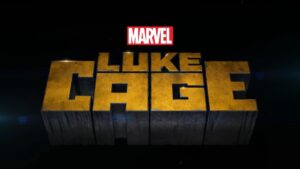
Marvel Entertainment / The Walt Disney Company
Starring Mike Colter (Luke Cage), Mahershala Ali (Conell Stokes / Cottonmouth), Samone Missick (Misty Knight), Theo Rossi (Shades), Erik LaRay Harvey (Diamondback), and Alfre Woodard (Mariah Dillard) with Rosario Dawson as Claire Temple, Parisa Fitz-Henley as Reva Connors, and Rachael Taylor as the voice of Trish Walker
LUKE CAGE SEASON ONE
Produced by Marvel Television
Originally aired on Netflix
Number of Episodes: 13
Initial Streaming: September 30, 2016

Marvel Entertainment / The Walt Disney Company
Fun Luke Cage: Season One Facts
Luke Cage was created by Archie Goodwin, Roy Thomas, George Tuska, and John Romita Sr. for Marvel Comics, debuting in Hero for Hire # 1 in 1972. Carl Lucas was a character that grew up in Harlem as a member of a gang that carried out petty crimes with dreams of establishing a lucrative criminal career until abandoning such ambition for the sake of his family. Cage is eventually incarcerated after being set up and falsely accused of drug possession by his childhood friend. In prison, Cage is recruited by Doctor Noah Burstein for a cellular regeneration experiment based on a variant of a previous Super Soldier Serum. The experiment was an extension of the famed Weapon Plus program within Marvel Comics (Weapon VI); the same program that oversaw the creation of the mutant known as Wolverine. The painful and life-threatening procedure imbued Cage with unbreakable skin. From there, Carl Lucas adopted the name “Luke Cage” and began fighting crimes as a Hero for Hire.
Skin was an important theme in early Luke Cage stories. The fact that Luke Cage was a black character was a big deal when he was introduced. Cage’s introduction came just six-years after Marvel introduced its first black superhero: The Black Panther (T’Challa). Sam Wilson (The Falcon) followed in 1972, and Luke Cage predated future black Marvel Heroes such as Blade (1973), Misty Knight (1975), Storm (1975), and James Rhodes / War Machine (1979).
As Marvel Comics evolved, Luke Cage would become known as “Power Man”, boasting the catchphrase “Sweet Christmas.” In time, Cage would be romantically paired with Jessica Jones in the comics, a rather big deal at the time since Cage was a black man and Jones was a white woman. Cage and Jones would eventually have a daughter together. Cage also grew to work closely with Danny Rand / the Iron Fist as “Heroes for Hire” and during the mid-2000’s and under the watch of writer Brian Michael Bendis, he became a member of The New Avengers alongside Captain America, Iron Man, Spider-Man, Spider-Woman, and Wolverine.
Marvel Television was founded on June 28, 2010, roughly six-months after the Walt Disney Company acquired Marvel Entertainment and just over two years after the introduction of the Marvel Cinematic Universe by Marvel Studios with the theatrical release of Iron Man in 2008. Jeph Loeb was named Executive Vice President of Marvel TV upon the launch, working in a position that was similar to the one that Marvel Studios President Kevin Fiege held on the movie side of things. While projects surrounding The Hulk and Jessica Jones were in various phases of development by Marvel TV, it wasn’t until 2012 that a television series under the new regime truly got off the ground and that series was Agents of S.H.I.E.L.D. A Pilot for the show was ordered by ABC over the Summer of 2012, with intentions to set the series within the Marvel Cinematic Universe, coming off the monumental success of Marvel Studios’ The Avengers as well as the other five films that comprised Phase One of the MCU: the aforementioned Iron Man, The Incredible Hulk (distributed by Universal Pictures), Iron Man 2, Thor, and Captain America: The First Avenger.
Shortly after the debut of Agents of S.H.I.E.L.D., Marvel Television began shopping four individual series that would culminate in a team-up series; the same formula that Kevin Feige and his Marvel Studios team used in their First Phase of MCU films from 2008-2012 which culminated in The Avengers. These shows would be based on Marvel characters Daredevil, Jessica Jones, Luke Cage, and Iron Fist, and would culminate in a team-up series: The Defenders. The Netflix streaming service quickly reached a deal with Marvel Entertainment and Daredevil debuted on April 10, 2015, followed by Jessica Jones on November 20, 2015, a Second Season of Daredevil on March 18, 2016, Luke Cage on September 30, 2016, Iron Fist on March 17, 2017, and The Defenders on August 18, 2017. These shows were much darker in tone than traditional Marvel Studios movies were, and they were for the most part met with widespread critical acclaim. The most praise was heaped upon actor Charlie Cox and his portrayal of Matt Murdock / Daredevil, actor Vincent D’Onofrio for his portrayal of Wilson Fisk / The Kingpin, actress Krysten Ritter as Jessica Jones, David Tennant as Kilgrave / The Purple Man, Jon Bernthal as Frank Castle / The Punisher (who debuted during the Second Season of Daredevil), and Mahershala Ali as Cottonmouth. Daredevil eventually produced three critically acclaimed Seasons while Jessica Jones produced three as well, and The Punisher had two highly praised Seasons of his own. The First Season of Luke Cage was well received, but both Iron Fist and The Defenders team-up series were divisive. Though these Netflix shows were scripted to be set within the Marvel Cinematic Universe, callbacks to the MCU movies were limited, but certainly there for fans that were paying attention.
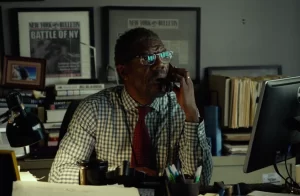
Marvel Entertainment / The Walt Disney Company
MCU Easter eggs in the First Season of Daredevil begin with the show’s overall villainous plot as several crime lords have come together and risen to power amidst the rebuilding of portions of New York following the Chitauri invasion led by the Asgardian God of Mischief Loki as seen in The Avengers. The criminal underworld is fueled by drugs, financial conspiracies, human trafficking, and of course murder, and Matt Murdock quickly finds himself in a war to bring the regime down both in court alongside his best friend and fellow lawyer Foggy Nelson and on the streets as the black-mask-wearing Devil of Hell’s Kitchen. The event that MCU fans know as “The Battle of New York” is referred to as “The Incident” throughout the series. Other MCU Easter eggs in Season One of Daredevil include framed newspapers in the office of reporter Ben Urich of the stories he wrote on The Battle of New York as well as The Hulk’s fight with the monstrous Abomination (as seen in The Incredible Hulk). Also, the iconic Stan Lee, known for his numerous cameo appearances across Marvel Cinematic Universe films and beyond can be seen in a framed picture hanging on the wall at the police precinct. Furthermore, in context to the wider Marvel Cinematic Universe, Daredevil illustrates the consequences of big superhero fights such as the Battle of New York and how common people are affected. The Battle of New York left portions of New York in ruins, and The Kingpin and his cohorts have taken advantage of that, working from the shadows to profit from the carnage and building quite the empire for themselves at the expense of the innocent and the impressionable. Tackling these issues subtly sets up the premise of Marvel Studios’ Captain America: Civil War, a film that would address the outcry by many citizens for superheroes to be kept in-check via government regulation with Harlem (The Incredible Hulk), New Mexico (Thor), New York (The Avengers), London (Thor: The Dark World), Washington DC (Captain America: The Winter Soldier), and Nigeria, South Africa and Sokovia (Avengers: Age of Ultron) all playing host to extravagant battles involving The Avengers that were costly in terms of both physical destruction and human lives.
Behind the scenes as Marvel Television continued to take on new projects, Kevin Feige and his Marvel Studios team were reportedly none too thrilled with the intended expansion of the Marvel Cinematic Universe into television and streaming and a sort of real-life Civil War erupted within Marvel. This was a fight over characters and themes. As far as Marvel Entertainment as a whole was concerned, their shows and films existed in ONE Shared Universe, and everything was “All Connected.” On Kevin Feige and Marvel Studios’ side however, these shows were seen at the time as irrelevant, and the movies were all that mattered. Joss Whedon, who directed two Avengers movies for Marvel Studios in 2012 and 2015, respectively, while also assisting in the development of ABC’s Agents of S.H.I.E.L.D., in fact publicly called the divide between Marvel TV and Marvel Studios out in 2015, around the time that Daredevil was released on Netflix and that Whedon’s Avengers: Age of Ultron was released in theaters, stating “I think actually the movie people were a little bit cross about [Agents of S.H.I.E.L.D.]. They were sort of like ‘Well you can have this but not this. And this but not that.’ It’s complicated enough as it is without me adding another layer of complication. We also created a TV show called S.H.I.E.L.D. right before they made a movie where they destroyed S.H.I.E.L.D. So, everybody’s having a GREAT time!”
Future written works would reveal that Kevin Feige resented Marvel Television over Jeph Loeb and his team being given control over Daredevil and other Defenders characters after Marvel regained the rights to them because he had intentions of using them in the films, and this made for a somewhat hostile environment where Jeph Loeb and his team worked hard to stay true to the narrative that was being told in the Marvel Studios films while Kevin Feige and his team made no effort to acknowledge anything that was happening on the television side of things. Kevin Feige was furthermore frustrated over having to answer to Marvel CEO Ike Perlmutter and his Marvel Creative Committee which oversaw all MCU projects at the time.
On August 31, 2015, everything came to a head with the announcement from The Walt Disney Company that moving forward, Marvel Studios would move out from under Marvel Entertainment and would fall directly under the jurisdiction of Walt Disney Pictures with Marvel Studios President Kevin Feige answering directly to Walt Disney Studios Chairman Alan Horn instead of Marvel Entertainment Chairman Ike Perlmutter. Reports emerged that revealed Kevin Feige had nearly resigned as Marvel Studios President due to the rift between himself and Perlmutter that had worsened over the course of the development of Captain America: Civil War. Disney CEO and Chairman Bob Iger talked Feige down with the promise that changes would come imminently, and those changes finally manifested themselves at the end of the Summer. These changes dramatically altered Marvel Studios as not only did Feige no longer have to deal with Perlmutter, but he no longer had to deal with the Marvel Creative Committee either, and the divide between the movie and film divisions that already existed widened to the point that each of the television shows significantly reduced their references to the events of the films, and to where most fans eventually grew to believe that only the productions that were produced by Marvel Studios were considered official MCU canon by Marvel Studios. In fact, despite many of the actors who signed Marvel Television contracts doing so under the impression that their shows took place within the MCU and with an understanding that the potential was there for movie crossovers, it wasn’t until 2019’s Avengers: Endgame that the first instance of a character that was introduced by Marvel Television formally reprised their role within the Marvel Cinematic Universe in a movie and that was done on a technicality when James D’Arcy reprised his role as a Variant of his Agent Carter character Edwin Jarvis during the 1970’s portion of The Avengers’ Time Heist. Aside from that, Kevin Feige showed no interest in bringing characters introduced by Marvel Television to the big screen for MCU crossovers, and during the climactic Battle of Earth in Avengers: Endgame, characters from The Defenders Saga were nowhere to be seen.

Marvel Entertainment / The Walt Disney Company
In the meantime, Marvel Television went on to produce other series’ in addition to Agents of S.H.I.E.L.D., two Seasons of Agent Carter, and the Netflix shows, including the widely hated Inhumans show on ABC (September 29, 2017), three Seasons of Runaways on Hulu (November 21, 2017), two Seasons of Cloak and Dagger (June 7, 2018) on Freeform, and Helstrom on Hulu (October 16, 2020). Agents of S.H.I.E.L.D. meanwhile lasted for seven Seasons, ending on August 12, 2020.
By the time Luke Cage: Season One was released on Netflix, the divide between Marvel Television and Marvel Studios became vividly apparent with the casting of Alfre Woodard as Mariah Dillard. This was due to Woodard being cast previously by Marvel Studios as Miriam Sharpe in Captain America: Civil War, sharing an important scene with Robert Downey Jr’s Tony Stark. While double castings such as this do at least somewhat hinder the continuity of the Shared Cinematic Universe, it is not exclusive to Alfre Woodard. That being said, the announcement at San Diego Comic Con 2019 that Mahershala Ali would be portraying Blade for Marvel Studios moving forward cast even more doubt on the “It’s All Connected” narrative.
From there, on December 10, 2019, following the promotion of Kevin Feige to Marvel Chief Creative Officer by The Walt Disney Company, Marvel Television was folded into Marvel Studios with Jeph Loeb leaving Marvel Entertainment and the Studio focusing its television content on the production of shows for the upstart Disney+ streaming service that would be firmly and undisputedly set within the Marvel Cinematic Universe, complete with multiple character crossovers from movies to television and from television to movies.
Then, Phase Four of the Marvel Cinematic Universe launched what Kevin Feige has since labeled The Multiverse Saga. As Phase Four evolved, Feige began to explore some of the toys that his suddenly deeper and wider sandbox boasted, beginning with a deal with Sony Pictures (with whom Marvel Studios began working in 2015 when Spider-Man was brought into the MCU) that would canonize all of Sony’s past Spider-Man films and the entirety of Sony’s Spider-Man Universe with it. All of this came together in the production of the Marvel Studios / Sony Pictures 2021 film Spider-Man: No Way Home which brought several characters from past Sony Spider-Man films into the MCU 616-Universe including Tobey Maguire’s Peter Parker / Spider-Man from Spider-Man, Spider-Man 2, and Spider-Man 3, and Andrew Garfield’s Peter Parker / Spider-Man from The Amazing Spider-Man and The Amazing Spider-Man 2. What may have been the worst kept secret in Hollywood history was still monumentally exciting for MCU fans and longtime Marvel movie fans alike, but the dual Spider-Man appearances weren’t the only intended surprise. For also appearing in Spider-Man: No Way Home was Charlie Cox as Matt Murdock / Daredevil! Though his appearance was little more than a cameo, it was immensely thrilling to see Cox share the screen with Tom Holland (Peter Parker), Jon Favreau (Happy Hogan), and Marisa Tomei (Aunt May) and after more than three-years following the end of the Daredevil Netflix series, MCU fans could finally get excited for the character’s future. Around this time, Vincent D’Onofrio appeared in Marvel Studios’ Disney+ series Hawkeye in a reprisal of his role as Wilson Fisk / The Kingpin as well. Meanwhile, and due to the rocky past relationship between Marvel Studios and Marvel Television, fans openly wondered – and debated – whether or not the respective versions of Daredevil and Kingpin in No Way Home and Hawkeye were one in the same as the versions of the characters that appeared in the Netflix shows.
Following the Marvel Studios debuts of Cox and D’Onofrio, each of Marvel Television’s Netflix series’ moved over to Disney+ from Netflix on March 16, 2022. Then, at the 2022 San Diego Comic Con, Kevin Feige announced that Cox and D’Onofrio would reprise their respective roles in a Marvel Studios Disney+ series titled Daredevil: Born Again. From there, Charlie Cox appeared as Daredevil once again in Marvel Studios’ She-Hulk: Attorney at Law series on Disney+ (complete with the familiar Daredevil Netflix theme when She-Hulk questions who he is) and Cox and D’Onofrio each filmed scenes for Marvel Studios’ upcoming Disney+ series Echo. On top of all of that, Jon Bernthal (who debuted as Frank Castle / The Punisher in the Second Season of Daredevil) was confirmed to be appearing in Daredevil: Born Again in a reprisal of his Netflix role as well.
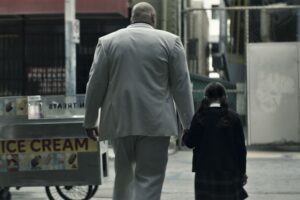
Marvel Entertainment / The Walt Disney Company
In November of 2023, Marvel Studios announced a new branding of select projects under the “Marvel Spotlight” banner. These were explained as projects that would be set within the Marvel Cinematic Universe that would focus on self-contained, character-driven stories that fans could enjoy without needing to catch up on other Marvel content. Echo was announced as the first MCU project under the “Marvel Spotlight” banner.
As the canon debate continued to rage, no one from Marvel Studios would either confirm or deny that the continuity of the now former Netflix shows would be honored. Then, the 2023 book Marvel Studios – The Marvel Cinematic Universe: An Official Timeline seemed to confirm that the histories of the characters were not going to be honored, as there was no mention of either Daredevil or Kingpin in the book prior to their respective appearances in No Way Home or Hawkeye. However, during an interview with Screen Rant that aired on January 3, 2024 (less than three-months after the Official Timeline book was published), Marvel Studios Head of Streaming, Television, and Animation: Brad Winderbaum confirmed that the Netflix shows were canon and that the events seen in those shows took place within the MCU 616-Universe and upon the Sacred Timeline. So, yes, these are the same versions of Daredevil and Kingpin whose journeys viewers of those now former Netflix shows followed! This was further confirmed the following day when a new trailer promoting Echo featured footage from the now former Netflix shows. Then from there, on January 10, 2024 (the day after all five episodes of Echo dropped on Disney+), each of the shows that comprised The Defenders Saga were moved to fit into the MCU chronology on Marvel’s Disney+ “MCU Timeline” menu page. It really was “All Connected” all along!
Marvel Studios’ Echo series premiered on Disney+ on January 9, 2024, with a Mature rating and very much boasting the spirit of the now former Netflix shows with plenty of blood, violence, and hard-hitting action scenes mixed in. Charlie Cox briefly appeared in the first episode of Echo, suited up in his familiar red suit (Cox wore a predominantly yellow suit in She-Hulk) battling the deaf soon-to-be-hero. Meanwhile, Echo’s past with Wilson Fisk (first established in Marvel Studios’ Disney+ series Hawkeye) was further explored with Vincent D’Onofrio stealing the show as Kingpin. As had been speculated in recent days, the past of Fisk as established in Daredevil was honored, specifically the murder of his father by his own hand when he was a child. Echo garnered a respectable 73% Approval Rating on Rotten Tomatoes and was confirmed to have been significantly edited by Marvel Studios in post-production. While Echo was always intended to set the stage for Marvel Studios’ Daredevil: Born Again, that series has undergone numerous changes as well, with Marvel Studios deciding to completely overhaul the series mid-way through production. The decision came at a time of self-reflection for Kevin Feige and his team following the return to Disney of Bob Iger and during a challenging time for the Studio that in addition to a Writer’s and Actor’s strike included some of the worst-reviewed and worst-performing Marvel Studios productions since Feige went into independent filmmaking from the divisive Ant-Man and The Wasp: Quantumania, to the critically loathed Secret Invasion series, to the box office bomb The Marvels, and on to outside controversies that included the leave of longtime executive Victoria Alonso and the removal of Jonathan Majors as Kang the Conqueror (The Multiverse Saga’s intended Big Bad) due to a domestic violence incident and consequent arrest and conviction. Iger and Feige came together to approach the future from a “Quality over Quantity” standpoint with many suggesting that the decision to make The Defenders Saga canon only came recently and was made in desperation due to the general feeling that what the people that were overseeing the production of Daredevil: Born Again were doing with the characters and the overall narrative just wasn’t working. Chris Ord and Matt Corman were therefore relieved of their duties and Justin Benson and Aaron Moorehead, who previously worked for Marvel Studios on Moon Knight and Loki: Season Two, were brought in along with Dario Scardapane (who worked as a writer on The Punisher series) as the new showrunner. Daredevil: Born Again was originally slated for a 2024 release on Disney+ but is now expected to be released sometime in 2025. Daredevil regulars Deborah Ann Woll and Elden Henson have recently been confirmed to be reprising their respectful Daredevil roles of Karen Page and Foggy Nelson, another creative change that was made at the beginning of 2024.
Upon the MCU (Sacred) Timeline, Luke Cage: Season One takes place primarily after Daredevil: Season Two and before Iron Fist: Season One.
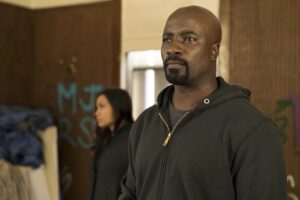
Marvel Entertainment / The Walt Disney Company
Luke Cage marks the first MCU production to feature a black lead / titular character. It would be another 18-months before Marvel Studios’ Black Panther starring Chadwick Boseman and a predominantly black cast would hit theaters. It should be noted however that Marvel Studios’ first-ever production (1998’s Blade starring Wesley Snipes) revolved around a black titular character as well. Even after their declaration of independence in 2005 and the coinciding launch of the Marvel Cinematic Universe in 2008, Kevin Feige and his team did not shy away from featuring People of Color in high-profile superheroes roles. This included the castings of Samuel L. Jackson as Nick Fury, Tereance Howard / Don Cheadle as James Rhodes / War Machine, Idris Elba as Heimdall, and Anthony Mackie as Sam Wilson / The Falcon, and of course Chadwick Boseman as The Black Panther, followed by the Marvel Television castings of Vondie Curtis-Hall as Ben Urich and Rosario Dawson as Claire Temple in Daredevil. Mike Colter actually made his debut as Luke Cage in Marvel Television’s Jessica Jones: Season Two where many of the arcs that would be explored in his own show and beyond were first introduced, including the death of his wife Reva Connors, his unbreakable skin, and his relationship with Jessica Jones.
Though direct references to Marvel Studios films are few-and-far-between in the Marvel Television shows that originally aired on Netflix, Luke Cage directly name-drops Justin Hammer; a prominent and villainous weapons manufacturer portrayed by Sam Rockwell in Marvel Studios’ Iron Man 2. In the Marvel One-Shot: All Hail the King short film, Hammer is revealed to be residing at Seagate Prison along with Ben Kingsley’s Trevor Slattery (a featured villain in Iron Man 3). Seagate as we would learn in Luke Cage, was where Carl Lucas served time as well. Hammer’s mention in Luke Cage is in reference to powerful weapons of his development that have landed on the black market and Hammer’s various weapons designs and technologies play a central part over the course of this series, especially as it pertains to the villainous Diamondback. Beyond Hammer, Luke Cage also sees a young man selling bootleg footage from “The Incident” / Battle of New York and the villainous Cottonmouth mockingly calls Cage “Harlem’s Captain America” during the series. Further allusions to various heroes frequent the series as the disconnect between the general public and powered people continues to grow within the Marvel Cinematic Universe.
In Luke Cage, the legend of Icarus; the mythical boy who flew too close to the sun from Greek Mythology is audibly referenced. In the 2021 Marvel Studios film Eternals, we would meet the entity that tale (originally devised by the Eternal known as Sprite) is based on: the actual Ikaris, one of ten Eternals that journeyed to Earth in ancient times to fight on behalf of humanity against the monstrous Deviants. Ikarus is portrayed within the Marvel Cinematic Universe by Richard Madden.

Marvel Entertainment / The Walt Disney Company
My Luke Cage: Season One Review
Moment of Truth – Directed by Paul McGuigan. Written by Cheo Hodari Coker
I feel like reviewing Luke Cage is going to be a difficult task. If you’re familiar with my writings, you know that my favorite Marvel characters are those that I can most relate to and those through which I feel inspired. I cannot fairly relate to the characters presented in the first episode of Luke Cage and on the surface, that’s problematic in terms of fairly reviewing this show for the simple reason that I am not black. Nor did I grow up on the streets. There are a variety of hardships and injustices that black people suffer through that I have never experienced. Bigotry is real. Racism is real. That being said, please know as you read this review that I wholly hate racism. I detest bigotry. I despise injustice in all its forms. While I can never know what it’s like to be black, I can try and have empathy and compassion for my fellow human beings of all colors. I can try to learn about their history and their heritage and their culture in an effort to better understand who they are and where they’re coming from. These are the things that truly define us, far beyond the color of our skin. So, aside from the comic book feel of it all, for me, watching Luke Cage was a sort of learning experience as it is deeply grounded in African-American culture. The mood, the music, the lingo, the hope, the struggles … it’s raw and it’s deep and it’s real in its language, in its violence, and in its philosophy. This was a side of the MCU viewers had never seen; not even in The Incredible Hulk. This was the real Harlem. For better or worse. So, can I relate? No. Not exactly. But can I appreciate the efforts by Marvel Television to be authentic and grounded in the culture that this show is supposed to represent? That’s a yes, but I’ll leave it to other, more qualified people to debate how successful the showrunners were in achieving those goals.
I could tell right out the proverbial gate that Luke Cage was going to be a character-driven show and in Moment of Truth, we are introduced to do a multitude of interesting characters. There’s “Pop” portrayed by Frankie Faison. He’s an elderly and lovable barber with a shop in Harlem that serves as an open door to everyone. Pop has a sincere soft spot for children, and he works hard to influence them positively and to discourage them from falling into the many traps that the streets offer and from making some of the same mistakes that he did when he was younger. We meet some of those kids early in this episode at Pop’s Barber Shop: Shameek, Dante, and Chico, who will have pivotal parts to play in this story. We also meet Misty Knight (a bold NYPD Detective), Mariah Dillard (a Harlem Councilwoman), and Mariah’s cousin Cornell Stokes (known much to his chagrin as “Cottonmouth”; the leader of the Stokes Crime Family and owner of the popular nightclub known as Harlem’s Paradise). Harlem is presented as a tight knit yet complicated community comprised of people that have deep histories with one another and that have risen to varying levels of success. Drugs, guns, money, and politics are the driving forces that fuel this community, hanging like a dark cloud over everyone that inhabits it, rich and poor and young and old alike.
We of course catch up with Luke Cage too, months removed from the events of Jessica Jones: Season One which saw Jessica shoot him in the face. Pop serves as an angel in Luke’s ear, encouraging him to embrace his unique gifts and use them for the greater good, but Luke wants only to live a simple and quiet life off the grid. He is content working at Pop’s and Harlem’s Paradise and struggling to get by, but Pop wants him to be more.
The aforementioned Dante works at Harlem’s Paradise as well while Chico works at Pop’s Barber Shop. Both are buddies with the loud and overly-confidant Shameek and Pop has an obvious soft spot for all three of them, as he does Luke. Where things go bad is when Dante informs Shameek and Chico about a planned weapons deal that Cottonmouth has arranged with crime boss Domingo Colon. The trio conspire to inject themselves into the deal and steal the weapons and the money and wearing masks and carrying guns, they do just that. Shameek gets trigger happy though and this leads to a shootout that leaves Cottonmouth’s men and Colon’s men dead. Realizing the gravity of the situation, Dante begins to panic, fearing that Cottonmouth will suspect his involvement seeing that he was absent from work that night, and Shameek takes it upon himself to calm Dante’s fears by shooting him and leaving for him dead. Unfortunately for Shameek and Chico, Dante survived long enough to contact Cottonmouth and describe the situation with his dying breath.
Meanwhile, Luke Cage fills in for Dante at Harlem’s Paradise as a bartender and he meets Misty Knight at the bar. The two flirt playfully, and their evening ends with a romantic hook-up between the two (in what was quite the explicit scene), though Misty neglects to tell Luke that she is a police detective. After hooking up with Luke, she is called away to the Harlem Junkyard to investigate the murders of the previous evening. The failed exchange in the meantime leaves Cottonmouth in a very difficult position. The feared crime boss known as Diamondback sends his trusted associate “Shades” to meet with Cornell and assess the situation. Cottonmouth makes finding Shameek and Chico a top priority and he quickly locates Shameek and confiscates Shameek’s half of the money. The mouthy and defiant Shameek is then viciously beaten to death by the powerful Cottonmouth in what was a very disturbing scene … especially after Cottonmouth had been presented as such as calmly smooth individual throughout the episode. The performance of Mahershala Ali throughout this sequence and before made him the standout character for me.
Back to Luke Cage, we see his landlords getting harassed for money by campaign supporters that work for Mariah Dillard and when they decide to get nasty with Luke, he casually decides to beat the shit out of them. I really loved the sequence in which Cage is punched and it shatters the fist and wrist of his assailant. Really great stuff there, and it was awesome to see Power Man in action! His grateful landlords offer to hire him for future protection, and though he insists that his services are not for sale, he assures them that they will have nothing to fear in the future.
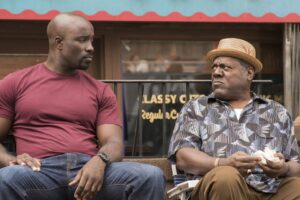
Marvel Entertainment / The Walt Disney Company
Code of the Streets – Directed by Paul McGuigan. Written by Cheo Hodari Coker
The second episode of Luke Cage sees Luke get his “Uncle Ben” moment and it’s powerful and gut-wrenching. With Shameek dead and his battered body recovered by the NYPD, the search is on for Chico from both law enforcement and Cottonmouth. Detective Knight has rightfully deduced that Chico did not kill Dante or Shameek and that he is in hiding and in fear. Soon, a curious Cottonmouth visits Pop’s Barber Shop for a shave, using the time to make a series of covert threats. Pop notices the fresh wounds on Cottonmouth’s hands as he shaves him, rightfully deducing that Cottonmouth killed Shameek.
This provokes Pop into a panic. He begs Luke to find Chico before anyone else does, stressing his love for the children of the neighborhood and when Luke refuses, Pop forces the issue and Luke complies. Cage successfully finds Chico, but he refuses to return to Pop’s Barber Shop with Luke. Cage returned to Pop empty-handed, but Chico soon showed up at Pop’s. Pop was both relieved and enraged and his entire interaction with Chico here was really well done as love and grief and regret just poured out of Pop. With Chico there, the NYPD arrived, and Chico hid in the back while Pop played coy, and Luke found out that Misty was a detective.
With the police gone, Pop urges Luke to go to Cottonmouth and propose a parlay. Cottonmouth gets his money. Chico lives. Win / win. Cage agrees but Cottonmouth isn’t pleased that Pop didn’t come to him in-person. Luke explains the situation and even gives Cornell an old picture of he and Pop from their youth and stresses that Pop wants only to do right by both Cottonmouth and Chico. Though Cottonmouth arrogantly fires Cage from his job at Harlem’s Paradise, he does agree to meet with Pop the following morning and come to an agreement. The scenes with Cottonmouth here are very important as after Luke leaves, he seems genuinely intent on resolving the situation peacefully. No such luck, however.
One of Cottonmouth’s bodyguards – a militant and prickly man named Tone – takes it upon himself to venture to Pop’s Barber Shop and kill Chico that very night, convinced it will endear him to Cottonmouth all the more. Devilishly provoked by Shades, Tone opens fire on Pop’s Barber Shop with machineguns. Luke covers a young boy that was having his haircut, but Pop and Chico are both gunned down. Pop dies from his wounds in Luke’s arms, encouraging Cage with the words “Forward Always. Always Forward” before taking his last breath. This scene is so very heart-breaking as Pop was such a likable character for all the right reasons, but it properly serves to motivate Luke to be more than he has been up to this point in his life.
On the flip side, Cottonmouth is devastated by the news of Pop’s murder and while he understands the selfish ambition of Tone all too well in going after Chico, the senseless death of Pop is something that Cottonmouth cannot forgive, and he angrily tosses Tone off the roof of Harlem’s Paradise to his death. Mahershala Ali was incredible here, once again emerging as the standout performance of this episode. Being able to see the love and respect from him in addition to his anger and rage made the character all the more effective and I was already craving a Luke Cage vs Cottonmouth showdown while being left with the feeling that Shades had been sent to Cottonmouth by Diamondback to destroy his empire from within.

Marvel Entertainment / The Walt Disney Company
Who’s Gonna Take the Weight? – Directed by Guillermo Navarro. Written by Matt Owens
With Pop dead, Luke meets with the funeral home to discuss arrangements. Luke admits to his financial difficulties and is disgusted when Cottonmouth arrives and vows to take on the bill while encouraging no expense be spared. Luke confronts Cottonmouth, who denies calling for the hit on Pop and then taunts Cage about his employment issues and encourages him to let things be. Luke has no intention of doing that, of course. He returns to Pop’s Barber Shop where Bobby Fish has ventured as well to try and clean things up. Fish recounts his friendship with Pop and explains that Pop had some significant debts, but also suggests to Luke, who has obvious hopes of keeping Pop’s Barber Shop open, that such things tend to work themselves out as long as the money continues to come in. This provokes Luke to see an opportunity that can kill to proverbial birds with one stone: pay off Pop’s debts and hit Cottonmouth where it will hurt the most!
So, Luke visits a hospitalized Chico and gets details on Cottonmouth’s financial secrets and begins attacking Cottonmouth’s stash houses throughout the city (framing Domingo in the process), which prompts Cottonmouth to move his holdings to the fortified Crispus Attucks Complex, which was sacred to his cousin Mariah Dillard. This was exactly what Luke intended, and Cage orchestrates a one-man raid of the facility, keeping just enough money to pay Pop’s debt and make things right with his landlord while allowing the rest to fall into the custody of the NYPD. The raid costs Cottonmouth millions and 80% of his wealth was in the wind.
Cage casually handed a bag full of cash over to Bobby Fish and then visited his landlord to make things right with her.
Meanwhile, Misty Knight is slowly becoming obsessed with Cage as she tries to piece together how things have so quickly spiraled out of control in Harlem. Though she has no proof, she is convinced that Luke is the person carrying out a one-man war against Cottonmouth. This leads to a familiar debate between Misty and her partner: Detective Rafael Scarfe. Misty believes that vigilantes are everything that’s wrong with the world while Scarfe thinks they’re doing law enforcement a favor when they take down known criminals. This yet again stresses the public divide over enhanced people and their activities that will ultimately result in the passing of the Sokovia Accords and the attempted government legislation of such things.
From there, Chico, inspired by Luke’s attempts to cripple Cottonmouth’s empire, contacts the NYPD and reveals that he wants to turn himself in and testify against Cottonmouth. Detective Scarfe picks Chico up and then murders him, revealing that Scarfe in fact works for Cottonmouth! Scarfe takes Chico’s corpse to Cottonmouth at Harlem’s Paradise and gives Cottonmouth Luke Cage’s address after revealing that Cage has been the root of his recent problems.
This prompts Cottonmouth to commandeer a rocket launcher and blow-up Cage’s residence while Luke is meeting with his landlord.

Marvel Entertainment / The Walt Disney Company
Step in the Arena – Directed by Vincenzo Natali and Written by Charles Murray
Luke Cage is trapped with his landlord Connie beneath the rubble of Cottonmouth’s attack and while he digs them out, we are treated to several flashbacks that delve into Luke’s complicated past. We learn that Luke was a former police officer who got framed for a crime and locked away at Seagate Prison. We see the corruption of the facility, which is practically run by corrupt correctional officer Albert Rackman (brilliantly portrayed by Chance Kelly). Cage is harassed and abused by Rackman from the start and though he does his best to keep to himself, he reluctantly befriends a kind fellow inmate known as Squabbles. We see Luke meet Reva Connors, who works at the prison as a psychologist, and he takes a quick liking to her that quickly develops into an attraction. Cage is soon cutoff from Reva however, by Rackman, who threatens Squabbles in order to force Cage to participate in his fighting rings that involve the Seagate inmates. Squabbles helps Cage train and Luke excels in the fights, just as Rackman believed that he would. Luke is terribly unhappy though, and Reva is horrified by his appearance and demeanor when she briefly encounters him for the first time in weeks. Luke refuses to come clean with Reva and is then horrified when Rackman notes the obvious feelings that Luke has for her, which provokes Luke to fear for Reva’s safety.
Luke seeks Reva out to tell her the truth about what has been going on with him and encourages her to leave Seagate due to Rackman’s threats. He then informs Squabbles of his intentions to bring Rackman down, prompting Rackman to have Squabbles beaten to death in an effort to discover what Cage had planned. An irate Rackman sends inmates Shades (yes, he was in fact imprisoned at Seagate with Cage, which was hinted at in earlier episodes) and Comanche to rough Cage up and they beat him to the point of death. Reva is horrified to see Luke’s condition and encourages the prison doctor (Noah Burstein) to subject Cage to one of the revolutionary experiments that he had been conducting on Seagate inmates. The experiment was intended to boost Luke’s healing and subsequently save his life, but a disgusted Rackman interrupted the experiment and commandeered the machine, vowing to burn Luke alive. Whatever Rackman did instead instantaneously healed all of Luke’s wounds and imbued him with super strength and unbreakable skin!
Cage busts his way out of Seagate and swims to shore, baffled by his newfound abilities. He quickly reconvenes with Reva, and after a head and beard shave, she deletes all of his records. After expressing their mutual affection for each other, they together decide on the name “Luke Cage” for the now former Carl Lucas.
Back in the present, Luke successfully digs himself and Connie out of the rubble to the dismay of Misty Knight.
I really loved the flashback stuff that we got in this episode! It was neat to see how Luke and Reva’s love story evolved and it was great to get all of the details on how and why Luke Cage was who and what he was; details that Jessica Jones: Season One did not give up. These scenes added a great deal of depth to his character, explaining why he is so mistrusting and why he is so protective over the secrets pertaining to his past. Squabbles was appropriately lovable and Rackman was appropriately a dick and I just thought everything came together really well. The therapy sessions were fantastic scenes and I just have to call out the wonderfully hilarious presentation of Luke’s all too brief comic accurate costume! It was appropriately ridiculous, and the scene was perfected by Luke seeing his reflection and expressing that he looked like a “damn fool.” Really funny stuff in a series that through the first four episodes has been very light on the humor.

Marvel Entertainment / The Walt Disney Company
Just to Get a Rep – Directed by Marc Jobst. Written by Jason Horwitch
Claire Temple, who had previous interactions with Luke Cage in Jessica Jones: Season One, arrives in Harlem and fights off an attempted thief while Cottonmouth, in retaliation to Luke Cage’s recent actions, extorts several citizens throughout Harlem in an effort to recoup some of his lost wealth. Cottonmouth encourages his minions to blame Luke Cage, prompting Cage to fight back as only he can before confronting Cottonmouth at Harlem’s Paradise and warning him to keep his name out of his mouth. Seeing Cage’s resistance to Cottonmouth’s men in-person jars the memory of shades and he realizes that Luke Cage is in fact Carl Lucas. This provokes Shades to share with Cottonmouth footage of a revolutionary Hammer Industries weapon dubbed the “Judas Bullet” that he believes could be the answer to killing Cage, but given his current financial predicament, Cottonmouth cannot afford it and his pride will not allow him to seek help from Diamondback as Shades suggests.
Cottonmouth instead looks to make things right by Domingo by returning the weapons that were impounded by the NYPD to Domingo. To do this, he reaches out to Scarfe and other NYPD contacts to arrange the transaction while he and many other prominent people from the Harlem community attend Pop’s memorial service. There, Luke Cage upstages Cottonmouth with his tribute to Pop, after which Misty Knight encourages Cage to leave Harlem before he makes things worse, warning that his war with Cottonmouth is only hurting the people of Harlem, but Cage insists that he will see the war through until its end.
Pop’s memorial service was the highlight of this episode.
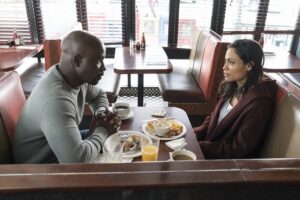
Marvel Entertainment / The Walt Disney Company
Suckas Need Bodyguards – Directed by Sam Miller. Written by Nathan Louis Jackosn
This episode revolves around the ill-advised efforts of Detective Scarfe to get one over on Cottonmouth amidst an investigation into his recent actions by internal affairs. Cottonmouth responds to his demand for an additional $100,000 violently, shooting Scarfe several times with his own gun. Scarfe just barely escapes with his life and in a replay of the Chico situation, makes his way to Pop’s Barber Shop.
After an awkward reunion with Claire Temple, Luke (with Claire) discovers the bloody and wounded Scarfe at Pop’s and Claire uses her medical expertise to tend to Scarfe while Luke listens to Scarfe admit to being a dirty cop, and admit to killing Chico, while also insisting that he will testify against Cottonmouth. This was a really well done sequence, particularly when Luke (who we know has no tolerance for dirty cops) debates whether or not to choke the life out of Scarfe for killing Chico after the young man turned himself in to the police – something that Luke encouraged him to do. Cage, with pleas from a concerned Claire, decides against killing Scarfe, knowing that he could be the key to really taking Cottonmouth down but a race against the clock commences after Luke ventures to Scarfe’s apartment to retrieve evidence against Cottonmouth as he is tracked by the NYPD. Cottonmouth has also put a $100,000 hit on Scarfe’s head.
With help from Claire’s mother, Luke and Claire attempt to get Scarfe to the police before anyone can interfere, but their efforts fail. Scarfe succumbs to his wounds mere blocks from their intended destination, despite Luke’s best efforts. Scarfe dies right in front of Misty, and she mourns his loss despite his crimes and takes pride in the ensuing arrest of Cottonmouth. Her boss regretfully informs her however that the charges are unlikely to stick due to how deep the conspiracy goes and how bad it makes the NYPD look.
Meanwhile, Mariah Dillard is embarrassed during a live television interview when the reporter exposes her ties to Harlem’s criminal underworld and her cousin Cottonmouth. Mariah responds angrily and is stunned moments later by the news that Cottonmouth has been arrested.
This was a great episode for the Misty Knight character.
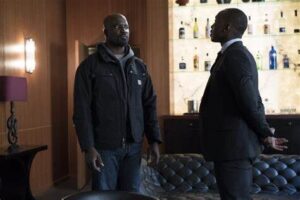
Marvel Entertainment / The Walt Disney Company
Manifest – Directed by Andy Goddard. Written by Akela Cooper.
The seventh episode of Luke Cage opens with Cottonmouth’s release from prison due to a lack of compelling evidence after the death of Detective Scarfe. The release of Cottonmouth bestows upon him a new aura of invincibility and confidence as he has gunned down a cop in broad daylight and gotten away with it. His cousin Mariah feels anything but invincible, however. Her political career is sinking by the second and she finds herself on the verge of a mental and emotional breakdown after being told to step down from her seat on the city council.
Cottonmouth asks to meet with Luke Cage at Harlem’s Paradise and Luke complies. There, Cottonmouth reveals that he now knows all about Luke’s past as Carl Lucas and threatens to take the news public if Cage doesn’t agree to begin working for Cottonmouth. This reveal shakes Luke to his core, as he has no desire to go back to prison. Luke considers fleeing Harlem, but Claire talks him down as only she can.
We get several flashbacks that show us Cottonmouth and Mariah in their youth being raised by Mama Mabel. We learn that Cottonmouth was an aspiring musician whose talents were encouraged by his Uncle Pete, and we learn that Mariah was molested by Pete. We see Cottonmouth’s first kill – none other than Uncle Pete after Mama Mabel demands it, and we see how that moment forever changed the young Cornell Stokes.
Back in the present, a panicked Mariah (having been visited by Shades and meticulously nudged closer to the edge of a breakdown) ventures to Harlem’s Paradise to see Cottonmouth and they become embroiled in a heated argument after Cottonmouth begins venting about the opportunities that Mariah received from Mama Mabel; opportunities that he was denied. When Cornell suggests that Mariah provoked Uncle Pete, she completely loses it, bashing Cottonmouth over the head with a heavy wine bottle and sending him crashing through his window to the floor below. Mariah follows downstairs and proceeds to beat Cottonmouth to death with a microphone stand, after which a pleased Shades arrives and praises her for what she has done.
From there, Luke and Claire share a walk through a park that is violently interrupted by Diamondback, who levels Cage with a Judas Bullet that severely wounds Luke.
Obviously, the biggest thing coming out of this episode was the death of Cottonmouth. It was an absolutely stunning development, and it was something that I hated. I didn’t hate it just because Mahershala Ali was the highlight of this show through its first half, but also because it meant there would be no satisfying payoff for the Cage vs Cottonmouth rivalry that had been slowly built up so well. That being said, Alfre Woodard was sensational during the scene as Mariah Dillard. She’d portrayed her character with confidence and as a level-headed and calculating businesswoman up to that scene which showed the unhinged side of her character, and she was appropriately terrifying throughout that memorable sequence. Kudos to her.
As for Diamondback, as far as first impressions go, I wasn’t impressed. I could tell that he was going to be a sort of polar opposite to Cottonmouth, but given how great Cottonmouth was as a character, I wasn’t so sure that that was going to be a good thing.

Marvel Entertainment / The Walt Disney Company
Blowin’ Up the Spot – Directed by Magnus Martens. Written by Aida Mashaka Croal.
This fast-moving episode of Luke Cage primarily revolved around Claire trying to nurse a wounded Luke back to health and I enjoyed each and every moment that Mike Colter and Rosario Dawson were on the screen. The mature rating helped make the medical sequences all the more intriguing as Claire tried to figure out a way to get the shrapnel out of Luke’s body, but to no avail. Rosario Dawson was a godsend throughout this episode, more or less because she is likable and that’s more than I can say about the rest of the supporting cast, in this specific episode at least. Mariah and Shades and Diamondback and the new Police Inspector are all unlikable for obvious reasons, but even Misty Knight comes across as awful in this episode.
We see Misty refusing to listen to her gut concerning Luke’s innocence (he has been framed for the murder of Cottonmouth and is the NYPD’s primary suspect), we see her try to arrest Luke after tracking he and Claire down and despite knowing that he has an alibi, and then, we get a tense interrogation scene between Misty and Claire in which Misty bullies Claire and even physically assaults her! As a character, I understand that she’s going through a lot (crooked partner, confrontational new boss, having her life threatened by Diamondback), but I came out of this episode really annoyed with Misty.
Meanwhile, Luke is relentlessly pursued by Diamondback with a decent fight sequence between the two at a theater hall. Diamondback is revealed as a childhood friend of Luke’s named Willis Stryker, who takes credit for the hardships that Luke endured in prison while taunting Luke over the sins of his father and the death of Reva. At the end of the episode, Cottonmouth shoots Luke with another Judas Bullet that lands him in the back of a trash-collecting truck after telling Luke that their father is one in the same.
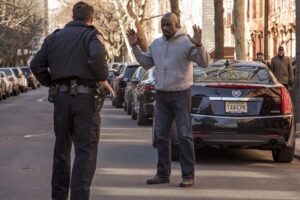
Marvel Entertainment / The Walt Disney Company
DWYCK – Directed by Tom Shankland. Written by Christian Taylor.
Luke Cage removes himself from the dump track that he landed in after being leveled by a Judas Bullet for a second time and roughs up a couple of trigger-happy police officers that confront him as he stumbles through the neighborhood. Dashcam footage of Cage overpowering the cops is leaked on the internet. Meanwhile, Mariah Dillard is nudged by Shades to organize a meeting with several local crime bosses to discuss the future following Cottonmouth’s death, only for Diamondback to massacre several of the men. He then forges an alliance with Mariah after she suggests that he think bigger about the potential of the Judas Bullet as a revenue generator as the general public’s fear of powered people continues to grow. Diamondback likes the way that Mariah thinks and is impressed with her resolve.
Elsewhere, Misty Knight undergoes an involuntary psychological evaluation due to her attack on Claire Temple.
As for the wounded Luke, Claire takes him to Georgia for a reunion with the Seagate Doctor (Burnstein) who bestowed upon Luke his unique abilities. Burnstein proposes a painful and rather experimental process that involves a tank of boiling acid that he hopes will enable the shrapnel within Luke to be extracted. The episode ends mid-procedure with Luke flatlining.
This episode was a full hour in length, and it felt like it. The most compelling parts of the episode was the stuff with Luke. Misty’s interrogation felt overly long and as Mariah and Diamondback did their thing, I continued to find myself desperately missing the presence of Cottonmouth.
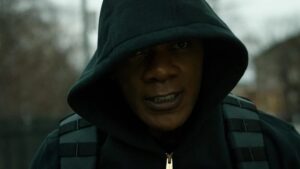
Marvel Entertainment / The Walt Disney Company
Take It Personal – Directed by Stephen Surjik. Written by Jason Horwitch.
Luke is resuscitated and Claire and Doctor Burnstein are able to successfully weaken Luke’s skin to a point where they can extract the shrapnel from within him and once it is out, Luke quickly makes a full recovery. Luke then discovers some dark truths about Reva, realizing that she had lied to him and that she was not the person that he thought she was. After attempting to destroy Burnstein’s work and threatening the Doctor against furthering his experiments, Luke declares that he no longer loves her and only ever loved the idea of her. After briefly considering running away from his problems once again, he decides to instead confront his past in Savannah, Georgia, where he comes to terms with the person that his womanizing preacher of a father really was as well as the fact that Diamondback really is his brother.
Back in Harlem, Misty receives her badge and gun back with Inspector Ridley encouraging Misty to make bringing in Luke Cage her primary priority. Misty is more interested however in learning more about Diamondback. In the meantime, Diamondback speeds up the process that Mariah proposed as only he can, murdering a local cop in broad daylight with advanced tech that gives him a deadly punch and then proclaiming himself to onlookers to be Luke Cage. This further divides the public on their opinion of Cage while further motivating law enforcement to bring Cage in, which prompts several incidents of police brutality, including an instance at the precinct in which a young admirer of Cage is roughed up. Mariah takes advantage of the chaos to suddenly resurrect her political career.
Everyone converges at Harlem’s Paradise where Mariah holds a political rally. Luke notices that Misty is pursuing Diamondback and gives chase, but Diamondback shoots Misty before Luke can intervene. He manages nonetheless to shield her from further gunfire as panic breaks out at the club. As the episode ends, a surrounded Luke promises to continue to shield Misty as mercenaries close in on them.
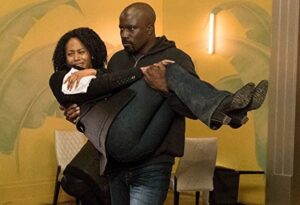
Marvel Entertainment / The Walt Disney Company
Now You’re Mine – Directed by George Tillman Jr. Written by Christian Taylor.
Picking up at Harlem’s Paradise where the previous episode left off, Luke Cage flees to the kitchen area with Misty Knight where he slips underneath the floor to a basement area just before Diamondback blasts the area. Diamondback takes the remaining rally attendees inside the club hostage while police surround the building. Claire Temple is one of the hostages. Shades irritates Diamondback by insulting his bravado and lack of a plan while Diamondback makes the appropriate moves to make it appear as though it is Luke Cage that has taken hostages. As Inspector Ridley wrestles with how to address the situation, District Attorney Blake Tower (as seen in Daredevil) arrives upon the scene to assess the situation and ultimately, the use of Judas Bullets by the NYPD team is approved, just as Mariah and Diamondback had hoped. This dramatically raises the stakes of course, for Luke Cage.
Back inside, Luke does his best to keep Misty from bleeding out while the Harlem’s Paradise waitress that previously helped frame Luke for Cottonmouth’s murder (Candace) comes clean with Claire, pointing her in the direction of Luke. Claire successfully locates Luke and Misty and helps stabilize Misty while Luke ventures out to confront Diamondback after Stryker vows to begin killing a hostage for every 10-minutes that Luke avoids him. True to his word, Diamondback starts with Councilman Daniel Boone, a rival of Mariah Dillard. Boone is killed with the same mechanical enhancement that Diamondback used to frame Luke for the killing of the local cop previously, amidst hopes of making it appear as if Luke killed Boone. He then hands the corpse of Boone over to the NYPD to invoke more panic on their part. Meanwhile, Shades pursues Claire and quickly happens upon her and Misty, but the girls effectively kick his arrogant ass and Misty detains him.
Luke finally emerges from the shadows to confront Diamondback, who has taken to directly threatening Candace. Luke rescues her just as the NYPD bust through the door and surround him. Cage has no choice but to surrender and he and other hostage takers (including Shades) are apprehended while Diamondback makes an escape.
I actually enjoyed this episode quite a bit. There was a lot of suspense and the perspectives of all of the key players were focused on appropriately. This was a fantastic episode for Misty Knight. She came across as brave and sincere and far less stubborn here and after recent happenings, this was needed. Also, Rosario Dawson continued to shine throughout this episode with her courage and complimentary stubbornness. Claire is an optimistic and level-headed character that is slow to judge, quick to forgive, and fast to act, and every time she is on the screen, this show is better for it. Diamondback continued to be a mixed bag though. I really liked the tension between Stryker and Shades being played up the way that it was, and overall, I like his Bible-thumping style of villainy and can relate to his contempt for Luke’s preacher of a father far more than I’d like to, but I still feel he’s portrayed too over-the-top for this show and his performance stands out like a sore thumb because of that. A lot of the writing of his dialogue oftentimes doesn’t help the situation either; a lot of his lines feel cheesy and campy and while some of Luke’s admittedly do as well, Mike Colter’s delivery and rapport with the audience (and Claire’s frequent calling him out for being “corny”) allow some of those things to work.
Overall, though, this was a solid effort, and I was really happy that Marvel Television let the Harlem’s Paradise standoff breathe the way that they did.
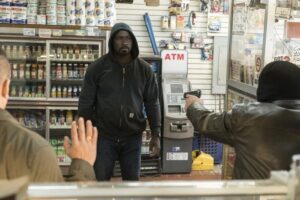
Marvel Entertainment / The Walt Disney Company
Soliloquy of Chaos – Directed by Phil Abraham. Written by Akela Cooper and Charles Murray.
Luke Cage slips away from the police after receiving an assist from an admiring cop while Misty Knight works to both clear Luke’s name and locate the elusive Diamondback. Inspector Ridley interrogates Shades but gets nothing out of him and Misty is contacted by Harlem’s Paradise waitress Candace, who tells Misty the truth about Cottonmouth’s death and the involvement of Mariah Dillard and also vows to testify against Mariah.
Meanwhile, Diamondback bails Shades out, but does so only in order to have him killed. Shades fights off Diamondback’s assailants however and lives to fight another day. He soon reconvenes with Mariah shortly after she has an uneasy meeting with Diamondback. Mariah has grown to detest Diamondback for the fate that has befallen her city, but feels she has no choice but to comply with his demands, given his unpredictability and recklessness. Shades, pissed that Diamondback tried to take him out, proposes that he and Mariah align with Luke Cage under the “the enemy of my enemy is my friend” premise.
In the meantime, Luke’s popularity within Harlem is on the rise, with several residents taking to wearing hoodies with bullet holes in them in a show of support. We see Luke stop a local robbery in what is a very fun sequence that involves famed rapper and producer Method Man, who later praises Cage on a local radio show and performs a rap in his honor. (Method Man composed the song Bullet Proof Love for Luke Cage: Season One). There is also a pretty fun scene with Luke torturing Turk Barrett (of Daredevil and Jesica Jones fame) in this episode.
Elsewhere, Diamond back decimates Domingo and the Mexican cartel.
Everything comes to a head at the end of this episode when Shades and Mariah venture to Pop’s Barber Shop to meet with Luke where Misty Knight also happens to be waiting. Shades offers Luke a packet full of everything that he needs to completely clear his name while Mariah vows to testify against Diamondback (she will of course finger him for the murder of Cottonmouth) in exchange for a truce and an unspoken understanding between all parties involved. Misty is hellbent on arresting Mariah though, and as Luke is considering his options, Diamondback attacks, bursting into Pop’s Barber Shop wearing bullet-resistant armor (much to the dismay of Shades, who unloaded on him) and looking for blood.
This was another overall good episode that built off the previous episode, but we have to discuss the proverbial elephant in the room here: Diamondback’s armored getup. For me, it looked absolutely ridiculous. It was bland and cartoony and unintimidating and did not translate to screen very well at all; yet another defining trait of this rather disappointing character execution. Nonetheless, a presumed final showdown pitting Luke Cage vs Cottonmouth was setup for the Season Finale.
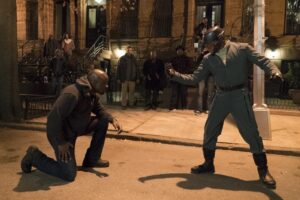
Marvel Entertainment / The Walt Disney Company
You Know My Steez – Directed by Clark Johnson. Written by Aida Mashaka Croal and Cheo Hodari Coker.
The Season Finale of Luke age: Season One was a letdown for me. I often hear the phrase “stick the landing” when television finales are discussed by fans and for me, Marvel Television did not “stick the landing” here. The better part of the first 15-minutes of this finale is spent on the Luke vs Diamondback fight inside and outside of Pop’s Barber Shop and while that sounds good on paper, given the build, I thought the fight was kind of awful. There were several flashbacks to Diamondback training Luke in boxing when they were younger and while the actors did a nice job portraying the characters, it made for a choppy and disjointed sequence. There was also a lot of dialogue during the fight – and a lot of it wasn’t good – and the crowd that surrounded them that began cheering and reacting made it all feel very “Professional Wrestling” and I don’t mean that as a compliment. The actual combat parts were fine. The hits were hard and the power displays from each were appropriately executed, and Luke using the “rope-a-dope” tactic to ultimately best Diamondback worked as a nice end to the showdown, but overall, this could have been better.
With Diamondback incapacitated, he and Luke both are taken into custody. Mariah meanwhile took it upon herself to out Cage as Carl Lucas to the media as the fight was ongoing, and this comes back to haunt Luke. Also, Misty Knight lost her phone during the carnage, and this comes back to haunt her as well.
At the police precinct, Luke gives an impassioned speech to everyone that will listen, defending his actions and stating his views. He effectively clears his name while Mariah is interrogated by Inspector Ridley and Misty. Mariah attempts to spin things in her favor and pegs Diamondback for Cottonmouth’s death, but Misty exposes her lies by playing the audio recording of Candace identifying Mariah as Cottonmouth’s killer. Mariah continues to be one step ahead though as news of Candace’s death (at the hands of Shades after Misty’s lost phone was commandeered) allows Mariah to walk free. Misty is deeply shaken by this failure of the system (which Ridley blames on her) and is further shaken by the system’s failure when Federal marshals arrive to arrest Luke for his escape from Seagate. There is a real “the bad guys win” feel here as Luke agrees to comply to the demands of the marshals and misses out on finally having “coffee” with Claire.
Mariah reopens Harlem’s Paradise and settles into a new role the likes of which Cottonmouth once filled, with Shades by her side, complete with a kiss. Meanwhile, Diamondback falls into the custody of Doctor Burnstein, who prepares to experiment upon him. And back at Pop’s, Bobby Fish finds the files that Mariah and Shades had offered Luke while Cage is driven back to Seagate with vows of “moving forward” as Pop always preached. Some of these things set up a Season Two nicely, but overall, this finale was a downer and a rather unsatisfying conclusion to the story that was told over 13 episodes.
Luke Cage wasn’t quite as good as Daredevil or Jessica Jones for me, but it was still well worth the watch, and the first seven episodes in particular were top-notch Marvel Television. Unfortunately, the second half of the Season fell off in quality significantly, with Cottonmouth’s mid-Season death in favor of a shift to focus on Diamondback making this show feel like one of the all-time missed opportunities in the history of live-action superhero storytelling.
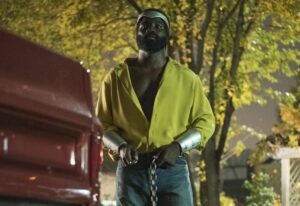
Marvel Entertainment / The Walt Disney Company
Highlights of Luke Cage: Season One:
Rosario Dawson as Claire Temple
Mahershala Ali as Cornell Stokes / Cottonmouth
Chemistry between Mike Colter and Rosario Dawson
Mike Colter as Luke Cage
Uneasy Tension Between Mike Colter and Mahershala Ali
Alfe Woodard is appropriately despicable as Mariah Dillard
Theo Rossin is appropriately dubious as Shades
Ron Cephas Jones as Bobby Fish
Frankie Faison as Pop
Seagate Flashback Sequences
Simone Missick as Misty Knight
Pop’s Memorial Service
Hostage situation at Harlem’s Paradise
Convenience Store Robbery Sequence featuring Method Man
Callback to Luke’s Original Comic Book Look
Sweet Christmas
Warmly embraced aspects of African-American Culture that make this one of the Most Unique and Authentic Marvel Series ever Created

Marvel Entertainment / The Walt Disney Company
Notable MCU Concepts and Characters Introduced:
Misty Knight. Cottonmouth. Diamondback. Mariah Dillard. Shades. Pop. Bobby Fish. Doctor Noah Burnstein and his Seagate Prison Experiments. The Judas Bullet.
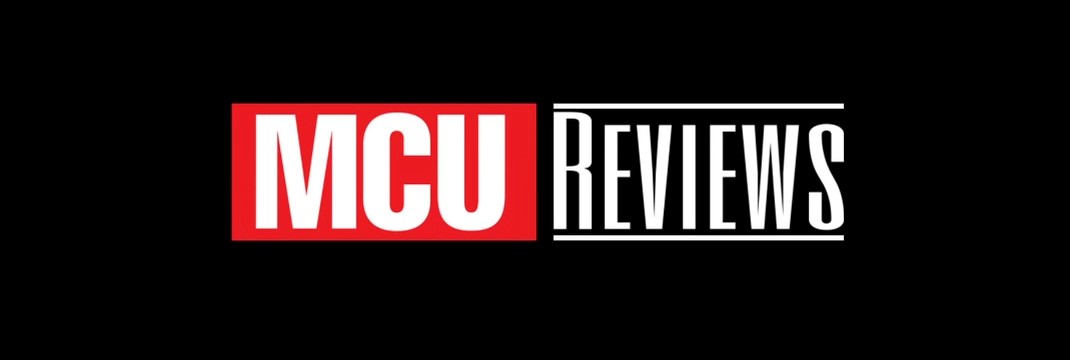
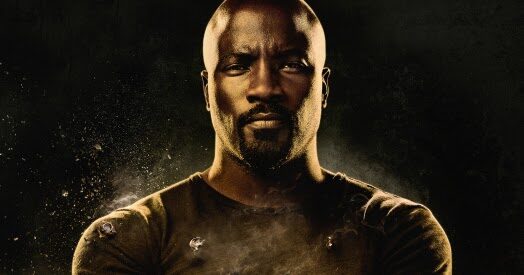
Leave a Reply